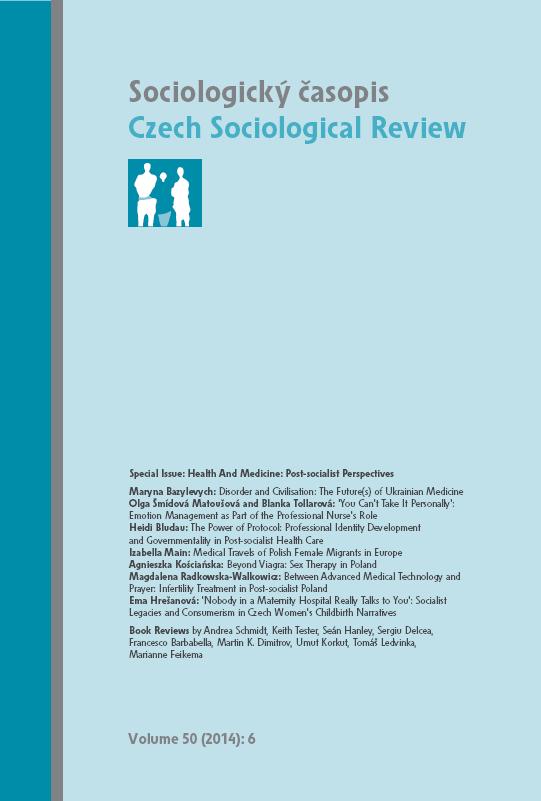Beyond Viagra: Sex Therapy in Poland
Beyond Viagra: Sex Therapy in Poland
Author(s): Agnieszka KościańskaSubject(s): Social Sciences
Published by: AV ČR - Akademie věd České republiky - Sociologický ústav
Keywords: history of sexology; history of sexuality; post-socialism; gender roles; Poland
Summary/Abstract: In the 1970s and 1980s, Poland, like most other countries in the region, provided not only unlimited access to abortion and contraceptives, but also a liberal sex education. This period moreover constituted a golden age in sexology in the country. Sexual science developed as a holistic discipline, embracing achievements in medicine, psychology, sociology, anthropology, philosophy, history, and religious studies, providing recourses for sex education and therapy. Sexuality was perceived as multidimensional and embedded in relationships, culture, economy, and society at large. This approach was fundamentally different from the biomedical model, which started to develop rapidly in the United States after Masters and Johnson’s publication of Human Sexual Response in 1966. Contemporary feminist critics like Leonore Tiefer point out that Masters and Johnson’s approach initiated the process of biomedicalisation and commodification of sexuality and led to the domination of pharmaceutical industries in sex therapy. Meanwhile, owing to the given political and economic context, socialist sexual science was not tied to the market and remained holistic until the advent of capitalism in the 1990s. Along with the invention of Viagra, the free market significantly reshaped the field of sex therapy, giving priority to pharmacotherapy, promoting new sexual dysfunctions, and marginalising other forms of treatment. Nevertheless, Polish sexology was not fully transformed. It proved surprisingly resilient to the influence of pharmaceutical industries and the holistic approach to sex therapy remains highly valued and often practised; pharmacotherapy is perceived as insufficient and sexual dysfunctions, including erectile dysfunctions, are frequently treated using psychotherapy, which takes into account not only psychological but also social, economic and cultural issues. This article is based on the author’s ethnographic and archival research on the development of Polish sexology since the 1970s. She focuses on the relationship between sexuality, socialism, and capitalism and shows that an analysis of socialist sexology sheds light on the nature of the contemporary hegemonic understating of sexuality and sex therapy.
Journal: Sociologický časopis / Czech Sociological Review
- Issue Year: 50/2014
- Issue No: 06
- Page Range: 919-938
- Page Count: 20

